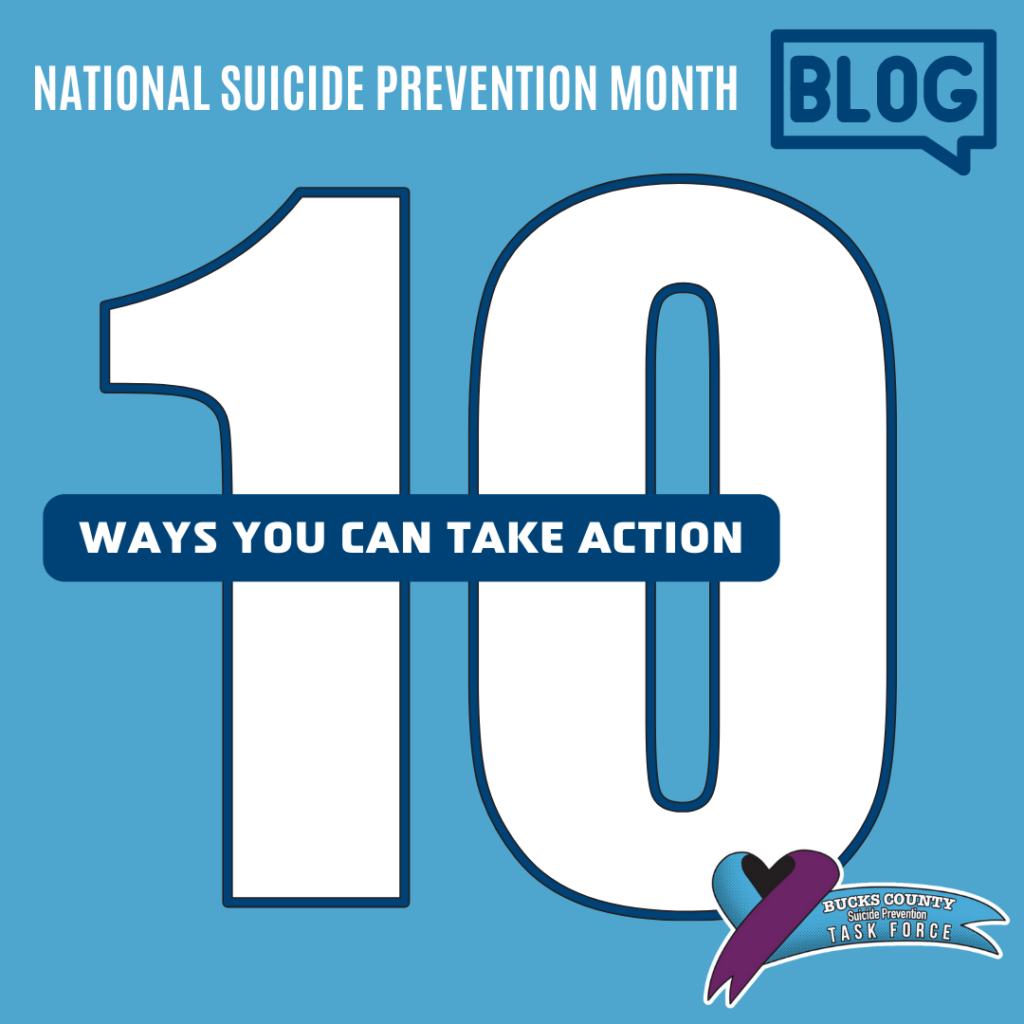September is Suicide Prevention Month, a critical time to bring attention to a public health crisis that claims over 700,000 lives each year globally. Suicide is a complex issue influenced by various factors, including mental health conditions, trauma, substance abuse, and socioeconomic challenges. While these statistics are alarming, the good news is that suicide is preventable. By raising awareness, fostering connections, and taking action, each of us can contribute to saving lives.
Here are ten ways you can take action during Suicide Prevention Month and beyond.
1. Educate Yourself and Others
Understanding the warning signs of suicide and the factors that contribute to it is the first step in prevention. Educate yourself and others on how to recognize behaviors that may indicate someone is considering suicide, such as withdrawing from social activities, expressing feelings of hopelessness, or giving away personal possessions.
2. Promote Open Conversations About Mental Health
Stigma and silence often prevent individuals from seeking help. Encourage open discussions about mental health by creating safe spaces where people feel comfortable sharing their experiences without judgment. Whether it’s through social media, community events, or casual conversations, normalizing the topic can reduce the shame associated with mental health struggles and make it easier for those in need to reach out.
3. Support Mental Health Organizations
Many organizations are dedicated to suicide prevention and mental health support. Consider donating to these organizations or volunteering your time. Groups like us, the Bucks County Suicide Prevention Taskforce, and the National Suicide Prevention Lifeline, provide crucial resources and support to those in crisis. Your contribution can help these types of organizations continue their lifesaving work.
4. Reach Out to Loved Ones
One of the most impactful things you can do is simply reach out to those you care about. Check in regularly with friends, family, and coworkers, especially those who may be going through a tough time. A simple phone call, text, or visit can make a significant difference. Express your concern, offer your support, and let them know they are not alone.
5. Advocate for Mental Health Policy
Advocating for better mental health policies can create lasting change. Support legislation that increases access to mental health care, funds suicide prevention programs, and addresses the social determinants of health. Contact your local representatives and voice your support for mental health initiatives. By advocating for systemic change, you can help create a society where mental health is prioritized and people have access to the care they need.
6. Use and Share Crisis Resources
Familiarize yourself with local crisis resources, such as hotlines, text lines, and mental health services. The National Suicide & Crisis Lifeline is an essential contact that offers 24/7 support, including veterans. Call them or text 988 or to chat at 988lifeline.org. Here is a full list of local crisis contacts. Having resources readily available can be a lifeline for someone in immediate need.
7. Encourage Professional Help
If someone you know is struggling, encourage them to seek professional help. Therapists, counselors, and psychiatrists are trained to provide the necessary support and treatment for mental health issues. Offer to help them find a mental health professional or accompany them to their first appointment if they feel nervous about going alone. Breaking down the barriers to seeking help can be a critical step in someone’s recovery.
8. Participate in Awareness Campaigns
Get involved in Suicide Prevention Month activities by participating in or organizing awareness campaigns. This can include walks, fundraisers, social media campaigns, or community events. These activities not only raise awareness but also foster a sense of community and solidarity among those affected by suicide. They provide an opportunity to honor those we have lost and to support those who are struggling.
9. Take Care of Your Own Mental Health
It’s essential to take care of your own mental health. Be sure to manage stress, seek support when needed, and practice self-care. By maintaining your well-being, you are better equipped to help others. Remember, asking for help is a sign of strength, not weakness, and it sets a positive example for those around you.
10. Share Your Own Story
When people are in crisis and afraid to speak out, it can help them understand they’re not alone and that others have struggled once as they do now. If you’re comfortable, sharing your own suicide-related story can provide hope for those who don’t know where to turn. If you decide to speak out publicly with your own personal story, it’s likely that someone will feel understood and compelled to seek help because you were brave enough to share.
Suicide Prevention Month is a time to reflect, educate, and take action. By incorporating these ten strategies into your life, you can play a vital role in preventing suicide and promoting mental health. Every action, no matter how small, can make a difference. Together, we can create a world where everyone feels supported and valued, and where no one has to face their darkest moments alone.

